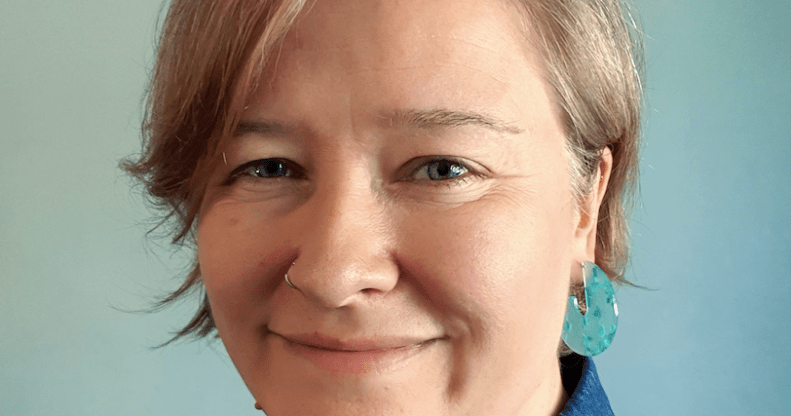Puberty blockers ruling is ‘disturbing’ and ‘sets a dangerous precedent’ for young people’s rights, says Stonewall chief Nancy Kelley

Nancy Kelley, the chief executive of Stonewall. (Image supplied)
The High Court ruling that transgender under-16’s must understand the risks of hormone therapy before taking puberty blockers is “disturbing and shocking”, says Stonewall boss Nancy Kelley.
The judges said in their ruling that it is “doubtful” children aged 14 to 15 could understand “the long-term risks and consequences” of taking puberty blockers and then hormone replacement therapy (HRT), and “highly unlikely” that children under 13 would be competent to give consent.
As a result, the court said clinicians may “regard these as cases where the authorisation of the court should be sought prior to commencing the clinical treatment”.
Commenting on the ruling, Nancy Kelley, Stonewall’s chief executive, said it was “both deeply concerning and shocking”.
“We’re worried this judgment will have a significant chilling effect on young trans people’s ability to access timely medical support,” Kelley said. “We welcome the Tavistock & Portman NHS Trust’s stated intention to appeal this ruling.”
While Kelley acknowledged that the judgment is unclear, she said it “implies that trans under 18-year-olds should obtain permission from a court before being prescribed hormone blockers by the NHS”.
She continued: “The judgment states that it’s ‘highly unlikely’ a child under 13 could ever give valid consent to treatment, and that it’s ‘very doubtful’ a 14- or 15-year-old is capable of giving valid consent. It also suggests that in some cases 16- and 17-year-olds might not be capable of consent and should seek a court order.
“The average onset of puberty in the UK is currently 11 for girls and 12 for boys.
“For decades, hormone blockers have been used to pause puberty for children experiencing precocious puberty. They also play a vital role in helping to alleviate the distress many trans young people experience and offer much-needed time to questioning young people to explore their identity. Denying this vital support is not a neutral act and can be deeply harmful to trans young people.”
Kelley also pointed to the fact that while puberty blockers are a reversible intervention, the judgement says that in order for young trans people to give informed consent to blockers, they must now also understand “the potential implications of a range of other potential future treatments, including cross-sex hormones and surgical intervention”.
“These are treatments only available to those aged 16 or over, and those aged 18 or over, respectively,” Kelley said. “We believe this is an extraordinary extension of the principle of informed consent.
“If this judgment is upheld on appeal, this ruling is likely to significantly extend the wait trans young people already face when seeking specialist support – and risks adding enormous strain to our already overstretched courts and mental health services.”
According to the judgement, as of November 2019 the waiting time for a first assessment at GIDS – the UK’s only gender clinic for under 18s – was between 22 and 26 months.
Kelley added that today’s ruling “set a dangerous precedent” not just for the rights of young trans people, but for all young people.
“Not only do we disagree that trans young people cannot understand the implications of treatment, but we’re worried this judgment risks eroding Gillick competency more broadly,” she said.
”Gillick established that people under the age of 16 can be capable of sufficiently understanding and consenting to medical treatments, like abortion or contraception , including
“The lawyers representing the claimants said they want to push Gillick to ‘breaking point‘. This judgment gives a green light to those who want to use this as an opportunity to roll back not just the healthcare rights of trans young people, but the rights of all young people.
“This news is going to be incredibly tough to hear for trans young people and their families, whether or not they are directly affected by it. Many trans young people and their families are being left with unanswered questions about what will happen to the support they need.
“NHS England must urgently give clarity to trans young people and their families about how they can continue to access care. We will continue to fight for trans young people to get the support they need, until every LGBT person is free to be themselves.”

